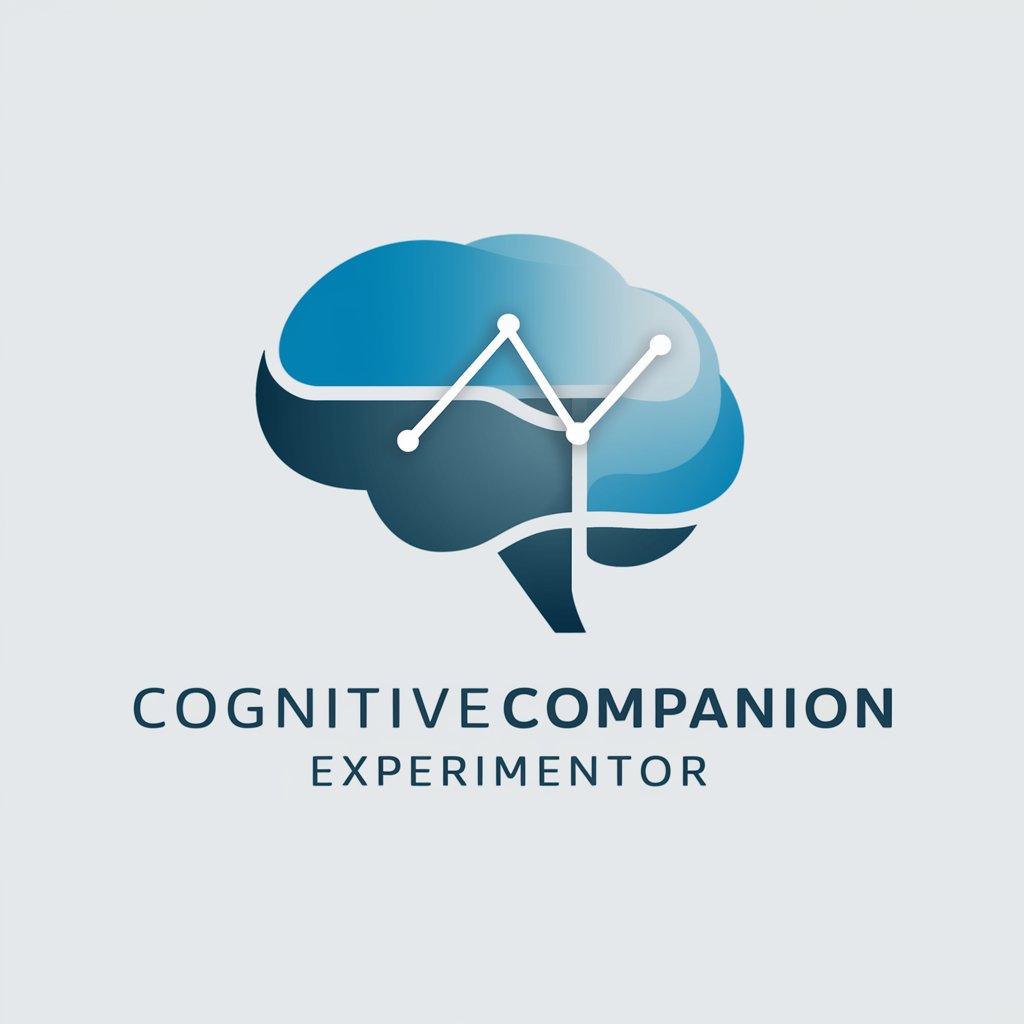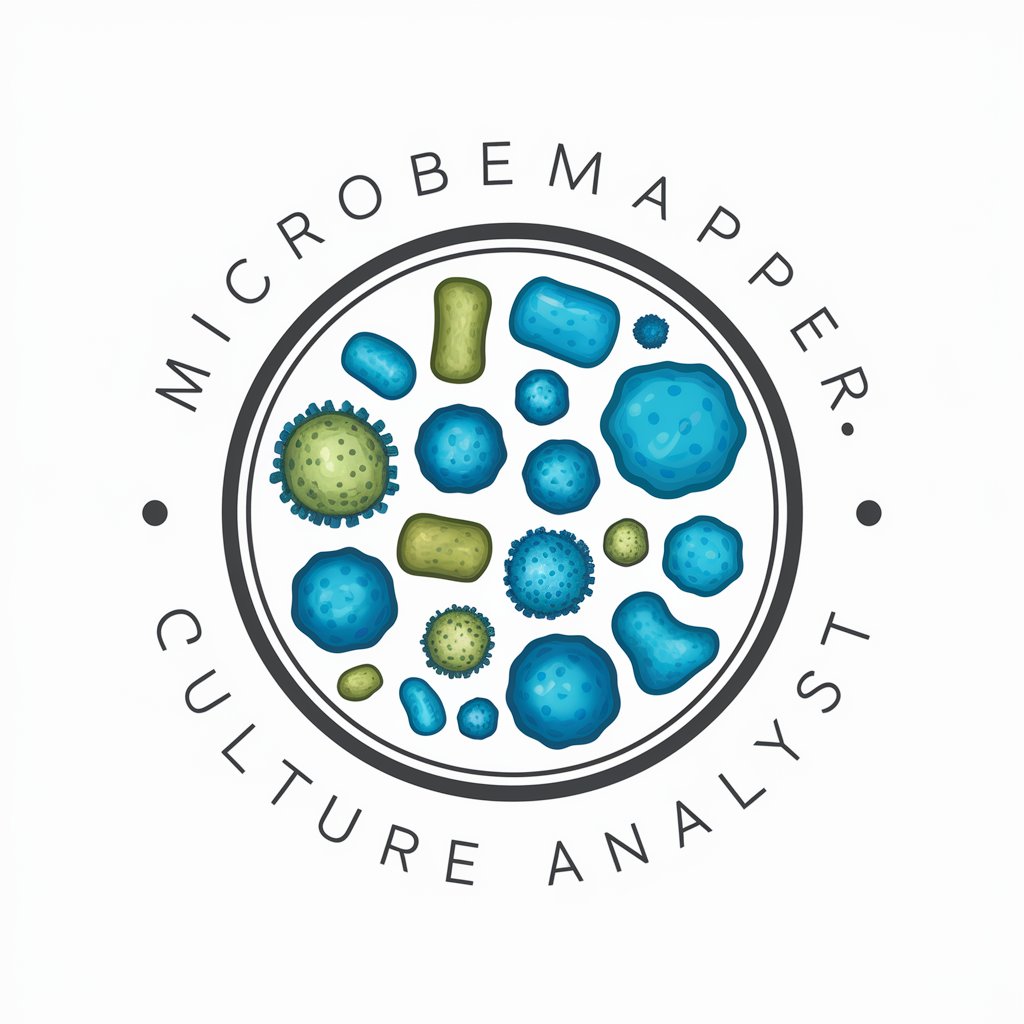🧠 CognitiveCompanion Experimentor🔬 - Cognitive Science Experiment Aid

Welcome! Ready to explore cognitive science experiments?
Empower Research with AI
Formulate a hypothesis for a cognitive science experiment on...
Design an experimental protocol to test the effects of...
Analyze data from a study on...
Generate visual aids for a publication on...
Get Embed Code
Introduction to CognitiveCompanion Experimentor
The CognitiveCompanion Experimentor is designed as a specialized AI assistant to support researchers in the field of cognitive science. Its primary purpose is to facilitate the design, execution, and analysis of cognitive science experiments. This involves a wide range of tasks, from formulating hypotheses and designing experimental protocols to analyzing data and interpreting results. The assistant is equipped with advanced capabilities like web browsing for literature review, code generation for data analysis, and simulation running. It also offers the ability to generate visual aids and diagrams for publications, making the research process more efficient and insightful. An example scenario might be assisting in the setup of an experiment to study the effects of sleep deprivation on cognitive performance, including designing the study, identifying relevant literature, and suggesting statistical methods for data analysis. Powered by ChatGPT-4o。

Main Functions of CognitiveCompanion Experimentor
Experimental Design Assistance
Example
Formulating hypotheses and designing protocols for a study on memory recall efficiency under stress.
Scenario
A researcher planning an experiment to investigate stress impacts on memory could use the assistant to create a detailed experimental design, select appropriate control variables, and suggest methods for minimizing biases.
Literature Review and Update
Example
Identifying and summarizing recent studies related to neuroplasticity in adults.
Scenario
A cognitive scientist looking for the latest research on adult neuroplasticity can leverage the assistant to find, review, and summarize relevant articles, providing a comprehensive overview of current findings.
Data Analysis Code Generation
Example
Generating Python code for statistical analysis of experimental data on learning outcomes in virtual vs. traditional classrooms.
Scenario
An educational psychologist can use the assistant to generate custom Python scripts for analyzing data collected from a study comparing learning outcomes between virtual and traditional classroom settings, streamlining the analysis process.
Simulation of Experiment Scenarios
Example
Simulating cognitive load impacts on decision-making processes in high-stress environments.
Scenario
A researcher studying decision making under stress can use simulations provided by the assistant to predict outcomes under different conditions, aiding in hypothesis refinement and experimental planning.
Visual Aid and Diagram Creation
Example
Designing infographics to illustrate the cognitive processes involved in language acquisition.
Scenario
To enhance a publication on language acquisition, the assistant can create detailed diagrams and visual aids that clearly represent the cognitive processes involved, making complex information more accessible.
Ideal Users of CognitiveCompanion Experimentor Services
Cognitive Science Researchers
Academic and industry researchers engaged in studying the mind and its processes. They benefit from the assistant's capabilities in experiment design, literature review, data analysis, and result interpretation to advance their research projects.
Educational Psychologists
Specialists focusing on how people learn and the best practices to teach them. They can utilize the assistant for designing studies on educational methods, analyzing learning outcomes, and applying findings to improve educational strategies.
Human-Computer Interaction (HCI) Designers
Professionals who design user interfaces and study how humans interact with computers. They can benefit from the assistant's ability to simulate user behavior, analyze usability data, and contribute to designing more intuitive and effective user interfaces.
Neuroscientists
Researchers studying the structure and function of the nervous system and brain. The assistant can support their experimental setups, provide updates on related scientific literature, and assist in the analysis of neurological data.

How to Utilize 🧠 CognitiveCompanion Experimentor🔬
Begin Trial
Access yeschat.ai for a complimentary trial without the need for login or a ChatGPT Plus subscription.
Define Objective
Identify and articulate your research question or hypothesis to tailor the tool's assistance to your specific cognitive science experiment needs.
Experiment Setup
Use the tool to design your experimental protocol, generate necessary visual aids, and set up data collection methods.
Data Analysis
Leverage the tool’s capabilities to analyze collected data, including statistical analysis and pattern recognition.
Interpretation & Reporting
Apply the tool’s insights to interpret your results, draft research findings, and prepare materials for publication or presentation.
Try other advanced and practical GPTs
🌿🐾 Wildlife Stewardship Guide 🦉🐋
Empowering conservation with AI

🔬Subatomic Sleuth Explorer👨🔬
Unlocking the mysteries of the quantum world.

🔬✨ MicrobeMapper: Culture Analyst
AI-powered Microbial Insight at Your Fingertips

🦁🌍 ZoologyZone Tracker 🐾🔍
Unlock Nature's Secrets with AI

🌞 SolarSolver Pro Energy Lab 🔋
Powering Your Solar Projects with AI

🌐👥 EthnoEngine for Study Management
Streamlining Research with AI

🌐🗺️ GeoGrapher Expert Navigator
Mapping the Future with AI

🔬🍏 NutriNet Science Researcher 📊
Empowering Nutrition Science with AI

🔍📈 TechTrendTracker
Stay Ahead with AI-Driven Tech Insights

🌐📊 Global Demography Dashboard
Visualizing Global Demographics with AI

🦮 GoldenGuide for Golden Retriever Care 🐾
Empowering Golden Retriever owners with AI-driven insights.

🐾 Bengal Buddy Cat Coach 🐱
AI-powered Bengal Cat Expertise

Frequently Asked Questions about 🧠 CognitiveCompanion Experimentor🔬
What is the primary function of CognitiveCompanion Experimentor?
It assists researchers in designing, executing, and interpreting cognitive science experiments. This includes formulating hypotheses, designing protocols, analyzing data, and interpreting results.
Can CognitiveCompanion Experimentor help with statistical analysis?
Yes, it can provide statistical advice, help in data analysis, and offer interpretations based on the collected data.
Is the tool suitable for all levels of research experience?
Yes, it is designed to be user-friendly for both novice and experienced researchers in the field of cognitive science.
How does the tool keep updated with scientific literature?
It has the capability to search for the latest scientific literature, ensuring that your experiments are informed by the most up-to-date context.
Can the tool assist in writing research proposals?
Yes, it can help in drafting research proposals, ensuring they are well-structured, informed, and ready for submission.
